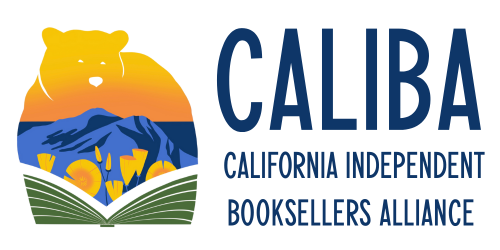An Excerpt from Author Tae Keller's Letter on Book Challenges
As we head into a new school year with all the news filling us with dread, I would like to share with you a piece of Tae Keller’s April 2025 newsletter. It gave me hope and the resolve needed to continue this fight. With Tae’s permission, I have quoted this at school board meetings and plan to read it to our banned books club, my staff, and everyone else who needs it. – Linda Sherman-Nurick, Cellar Door Bookstore
An Excerpt from Author Tae Keller's Letter shared with permission by your Political Advocacy Committee:
Which brings me to what I originally planned to talk about. Because this is a hard time societally.
There’s so much to talk about, but we’re here to talk about stories and children’s books, and somehow, we who work in children’s books have found ourselves at the center of a culture war.
Somehow, those of us who have worked and trained for years to write and share stories, who have spent many of those years with little pay, doing this because we care deeply for the children we serve—somehow we are treated with suspicion and even disdain. Somehow, the stories we love are treated with fear and ire.
We know that so much of this backlash has to do with diversity, of course. A backlash to the idea that all people are deserving of love and support, that we belong to one another, that we should care for one another.
We know the book banning arguments about “sexual content” and DEI, and I could talk about how those arguments make no sense at all. I have talked about that.¹ Many of us have. But sometimes I wonder if, in trying to rebuttal these arguments, I’ve let them frame the discussion too much.
I wonder if I’ve conceded, a little, the power of storytelling. Because there’s a reason book banners are so afraid of stories.
And if it’s not “sexual content”, and it’s not only diversity—then what is it?
When I try to answer this, first I think about change. Because stories are almost always about change. This is the hero’s journey: a character starts in one place and ends in the other, often changing their environment in the process.
This is good. Showing readers they can change not only themselves but also the world around them is one of the most impactful things we can do.
But the thing about change is that it’s threatening to those in power.
We live in difficult times, full of censorship and budget cuts and climate disasters and life that is becoming increasingly unlivable—and yet, there are people who are doing very, very well in this system. Those people want the world to stay the same.
And to those people, the only thing more threatening than change, is hope. Which is where children’s books come in. Because if stories are about change, then children’s stories are about change for the better.
There’s a piece of passed-down wisdom among children’s book authors. I heard from Kate DiCamillo, who heard it from Katherine Patterson² – which is that children’s book authors are duty-bound to end with hope.
We write across so many age groups, across genres and subgenres, in verse and prose, fiction and non-fiction. There’s as much diversity in form as there is in our characters as there is in our readers. But the thing that unites all children’s books is that they center hope.
That hope comes from a belief in a better world. A belief that change is possible—and that all of us can be part of it. A belief that people are good, and that we are worth fighting for.
And it is a fight now, because book banning is a fight to control the narrative. If you can control the narrative, you can control history. If you can convince people that the reason life feels harder is because of diversity and equity and inclusion, because of librarians and authors and books, instead of ultra wealthy politicians and billionaires who refuse to prioritize our well-being—if you can convince people that change and community should be feared rather than embraced, then you can keep them from advocating for anything better.
So even though, as someone who writes stories, I sometimes feel uncomfortable talking about how important stories are, those who ban books know that it’s true.
They know a hopeless population is easier to control. They know that if we do not believe the world can change, if we do not believe we can play a part in that change, we will not take any action at all.
But we know that a hopeful population can change history. Hopeful people make the world a better place.
 So I will keep writing toward hope.
So I will keep writing toward hope.
Additional remarks from Linda Sherman-Nurick:
At Children’s Institute this year, I heard so many booksellers, heroes really, talking about all the ways they are making sure the amazing books we have been gifted to sell get to kids, kids who need to see themselves, kids who need to see those unlike them so that they will be more comfortable welcoming them instead of fearing and hating them. I am so proud to be a member of this community and value all you do so very much.
I keep a copy of Tae’s comments readily available because when it gets difficult, and we all know it does, this reminds me of the hope that is worth the struggle.
I hope it helps in the coming school year!
